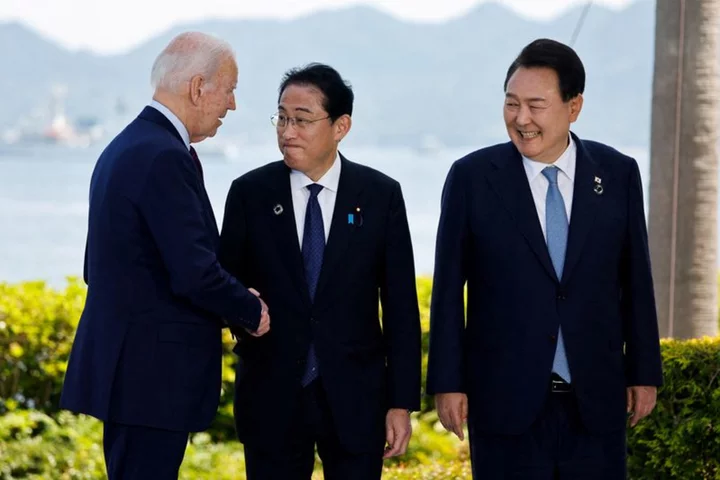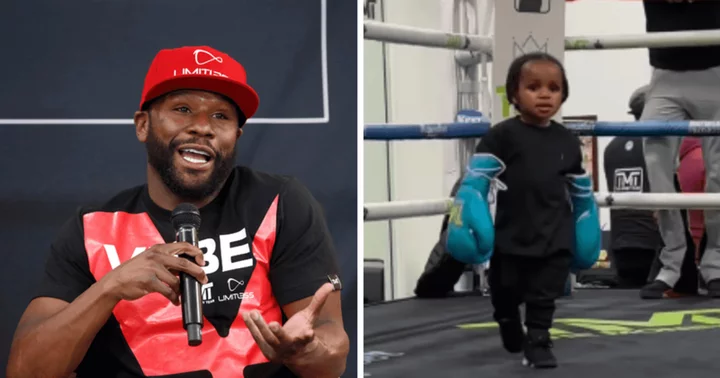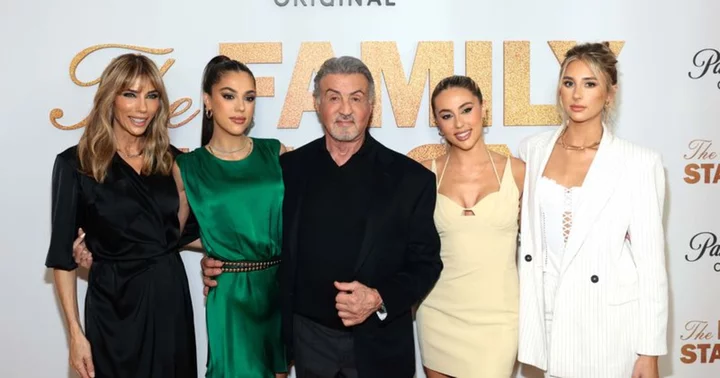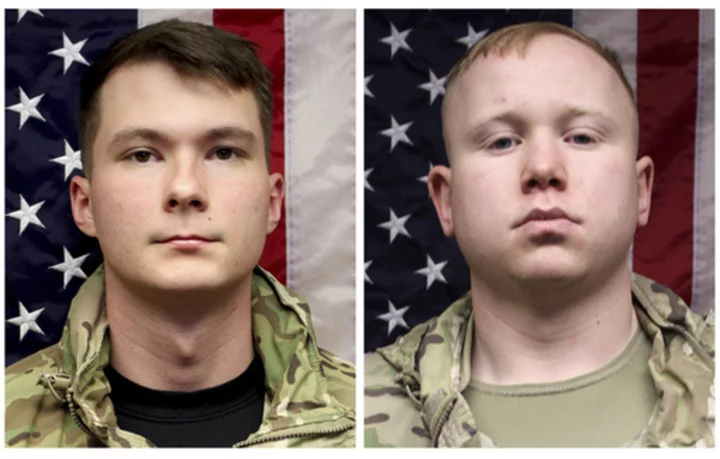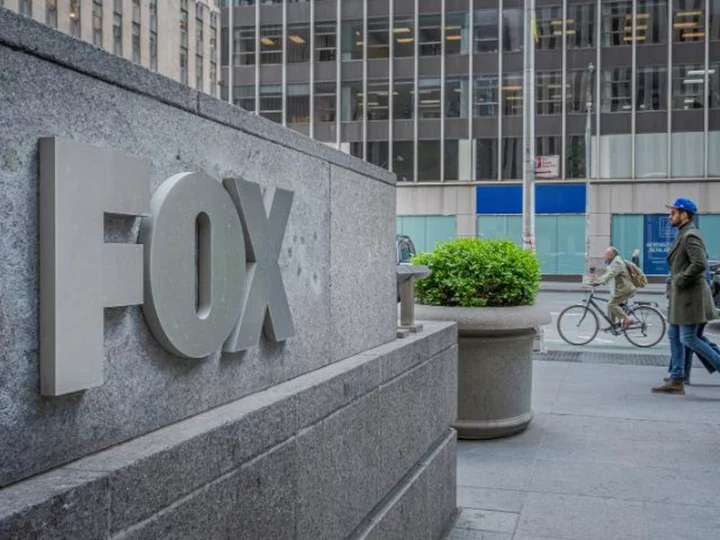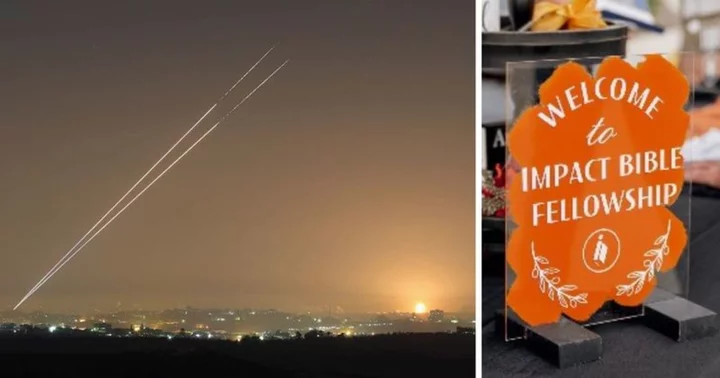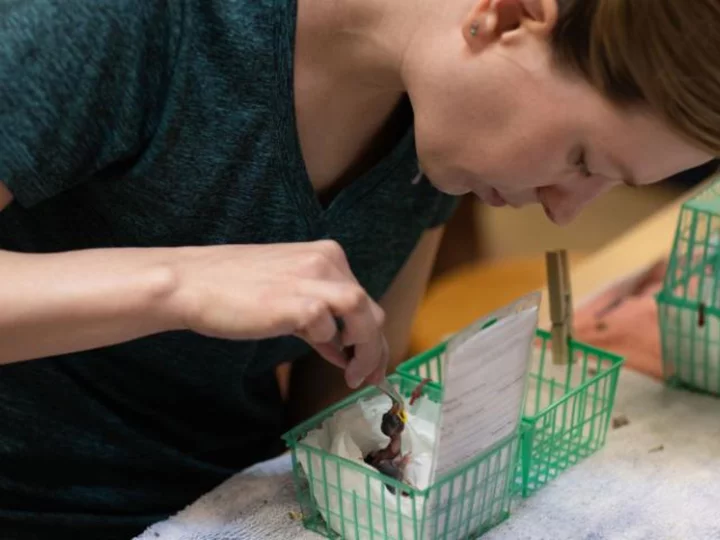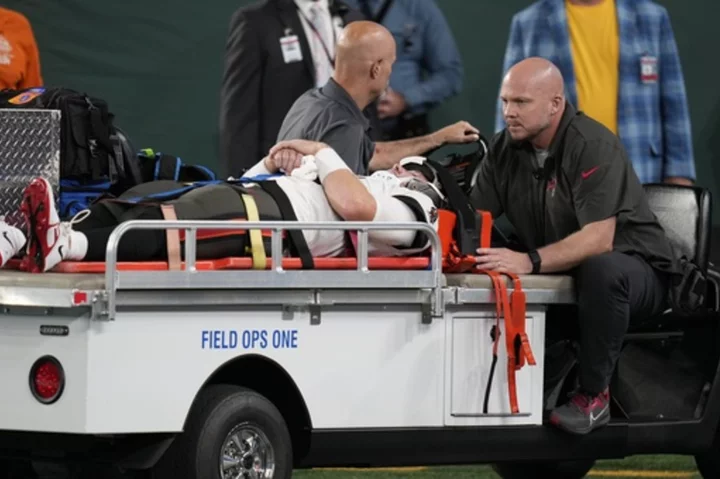By Trevor Hunnicutt and David Brunnstrom
CAMP DAVID, Maryland (Reuters) -U.S. President Joe Biden on Friday welcomed the leaders of South Korea and Japan to a summit at Camp David where the three countries are set to deepen military and economic ties as they seek to project unity in the face of China's rise and nuclear threats from North Korea.
U.S. National Security Adviser Jake Sullivan told a news briefing the meeting would announce "significant steps" to enhance trilateral security cooperation, including a commitment to consult each other in times of crisis.
Sullivan said the steps would include a multi-year military exercise plan, deeper coordination and integration on ballistic missile defense and improved information sharing, crisis communication and policy coordination "that goes along with responding to contingencies in the Indo-Pacific."
He said the leaders would also unveil new economic and energy security initiatives including an early warning mechanism for supply chain disruptions.
The commitments, which fall short of a formal alliance, will be the centerpiece of Biden's first Camp David summit for foreign leaders and represent a significant move for Seoul and Tokyo, which have a long history of mutual acrimony and distrust.
Biden, South Korean President Yoon Suk Yeol and Japanese Prime Minister Fumio Kishida are expected to have several hours to strategize a the mountainside presidential retreat over how to manage tensions in the Indo-Pacific region and beyond.
Kishida and Yoon, in jackets with no ties, walked side-by-side to shake hands with Biden before heading indoors, where they are expected to have a working lunch at Camp David's President’s Cabin, Aspen Lodge.
"Strengthening ties between our democracies has long been a priority for me," Biden said. "Our countries are stronger and the world would be safer as we stand together."
Biden praising the visiting leaders for their "political courage" in coming together.
Yoon cited former U.S. President Franklin D. Roosevelt as saying that freedom was not given but something that needed to be fought for and added: "Our three countries should be firmly united so that our freedom is not threatened or damaged."
Kishida said the gathering showed the three countries were "making ... (a) new history as of today."
The summit is expected to produce a series of joint statements, including commitments to establish a crisis hotline, work together on emerging technologies and to meet annually.
The meeting is freighted with symbolism: with Washington's encouragement, Tokyo and Seoul are navigating their way past disputes dating to Japan's 1910-1945 occupation of the Korean Peninsula.
Those disputes are among the reasons the leaders would not now consider a mutual-defense pact along the lines of what the United States has separately with both South Korea and Japan - who are not themselves formal allies - according to U.S. officials who declined to be identified while previewing the summit.
"What we have seen over the last couple of months is a breathtaking kind of diplomacy, that has been led by courageous leaders in both Japan and South Korea," said Kurt Campbell, Biden's coordinator for Indo-Pacific affairs.
"They have sometimes gone against the advice of their own counselors and staff and taken steps that elevate the Japan-South Korea relationship into a new plane," Campbell said.
CHINA VIEWS SUMMIT WARILY
No specific action by the trio in Camp David is expected to sharply increase tensions with China, though Beijing has warned that U.S. efforts to strengthen ties with South Korea and Japan could "increase tension and confrontation in the region."
While South Korea, Japan and the United States want to avoid provoking Beijing, China believes Washington is trying to isolate it diplomatically and encircle it militarily.
Responding to a question about charges leveled by China, Sullivan said the aim was "explicitly not a NATO for the Pacific" and also said a trilateral alliance had not been set as an explicit goal.
"We have not set an endpoint of a formal trilateral alliance," Sullivan said, while adding that the commitment to consult was "a very significant step because it means that the three countries recognize their common interest in having a coherent and coordinated response to any security contingency."
Tensions in the South China Sea have flared between U.S. ally the Philippines and China over a grounded warship that serves as a Philippine military outpost in the strategic waterway, a major global trade route.
North Korea's military said it had scrambled jets after a U.S. reconnaissance aircraft intruded into its economic zone off its east coast, state news agency KCNA reported on Friday.
Biden, an 80-year-old Democrat seeking another four-year term in the 2024 presidential election, faces a likely opponent in Republican former President Donald Trump, who has voiced skepticism about whether Washington benefits from its traditional military and economic alliances.
South Korea has legislative elections next year and Japan must hold one before October 2025, and what analysts see as a still fragile rapprochement between the two nations remains controversial among the countries' voters.
The White House, conscious of the electoral clock, wants to make the progress between South Korea and Japan hard to reverse, including by establishing routine cooperation on military exercises, ballistic missile defense, the economy, and scientific and technological research.
(Reporting by Trevor Hunnicutt at Camp David and David Brunnstrom and Susan Heavey in Washington; Additional reporting by Hyonhee Shin in Seoul; Editing by Don Durfee, Grant McCool and Alistair Bell)

